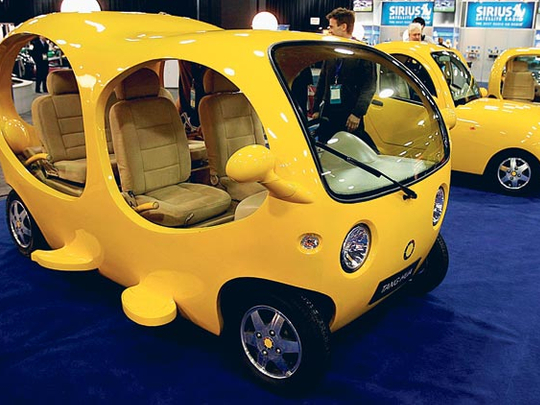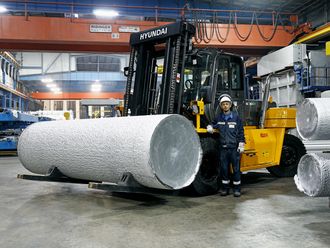
Detroit:The North American International Auto Show, the annual automotive gala in Detroit, may be best known as a stage for manufacturers to display their latest rolling gargantuans.
But to judge from this year's show, the next big thing may be small.
Driven in part by the recession, shifting consumer tastes and global marketing strategies, the US manufacturers who once obsessed over trucks and muscle cars are casting a spotlight on their diminutives.
Chevrolet plans to display its new Cruze and Aveo as well as the tiny Spark. Ford will highlight its Focus and new-to-the-United States Fiesta. Chrysler will put up a Fiat 500. And the Japanese automakers, who entered the small-car fray earlier and more forcefully, will show off the new Mazda 2 and Honda CR-Z and the most recent hybrids.
"It was cool for a while to be in a monster vehicle. Now it's uncool," said John DeCicco, a University of Michigan lecturer and longtime auto industry observer. "The Big Three were in denial. But I think they get it now."
Emphasis
Shifting sales figures reflect the new emphasis. Over the past eight years, the market share of compacts and subcompacts has grown from 15 per cent to 23 per cent, according to figures from Edmunds.com.
"We've definitely seen a shift from large SUVs [sport utility vehicles] to smaller SUVs, and those who looked at larger cars are now looking at mid-size cars," said Alex Perdikis, executive vice president of Jim Koons Automotive. "With the shift in the economy, people are looking to be more economical in more facets of their life."
Industry analysts attributed the change to a number of disparate forces. The recession has forced many consumers to reconsider their spending habits. The taste for miniaturisation is seeping from consumer electronics into the auto showroom. With the memory of soaring gas prices so recent, consumers have developed a preference for fuel efficiency. And finally, manufacturers seeking to operate globally are eager to bring some of their models that have proved popular overseas to the US market.
"Things that are large and clumsy are considered out of date and unsophisticated these days", said Sheryl Connelly, Ford's manager for global trends.
Ford sales have shifted dramatically as a result. In 2004, Ford sales were 70 per cent trucks and SUVs and 30 per cent cars. In 2009, they were 60 per cent cars, the company said.
Easing the way is the evolution of small cars. Using turbocharging and direct fuel injection, techniques often used in high-performance cars, engineers have rendered small-car engines more peppy and efficient.
"We believe we can give the consumers fuel-efficient cars with some appeal and personality, which has not always been the case," GM spokesman Greg Martin said.











